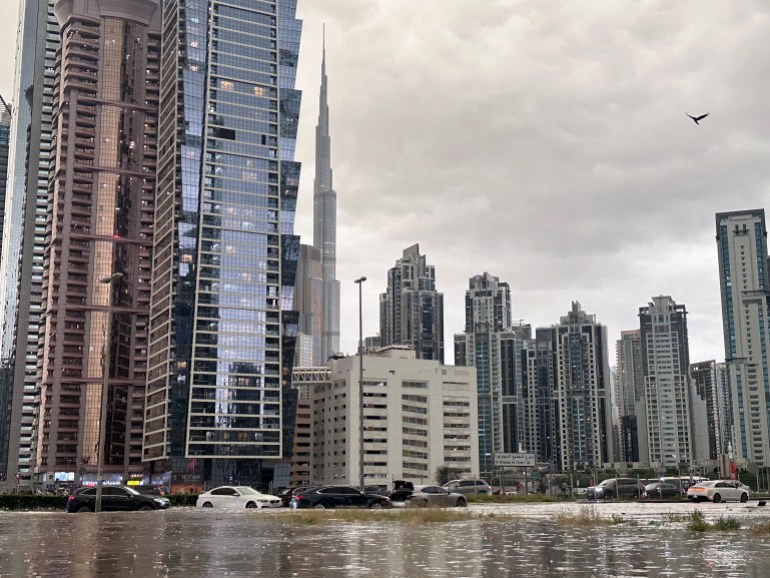Experts from the World Weather Attribution (WWA) have determined that the recent devastating floods in the UAE and Oman were likely exacerbated by global warming caused by fossil fuel emissions.
While the exact cause cannot be pinpointed with certainty, the study conducted by 21 international researchers found that extreme rainfall during El Nino years has become 10-40 percent heavier in the affected region.
The group stated that the increasing precipitation is most likely due to the warming caused by burning fossil fuels, with no other known explanations for the sharp rise in rainfall.
Tragically, the floods resulted in the loss of 21 lives in Oman and four in the UAE, marking the heaviest rainfall in the UAE in 75 years.
These extreme weather events serve as a stark reminder of the additional risks posed by global warming, especially in regions like the UAE and Oman that are typically dry.
Sonia Seneviratne, a WWA member and professor at Zurich’s ETH university, emphasized the increasing threat of precipitation events in dry regions due to fossil fuel burning.
Extreme rains
The study by WWA analyzed historical weather data and climate models to identify changes in rainfall patterns, particularly during El Nino years characterized by unusual warming in the eastern tropical Pacific Ocean.
It was revealed that extreme rains were significantly less intense in the years prior to recent events, highlighting the impact of climate change on extreme weather phenomena.
Original article available at www.aljazeera.com
